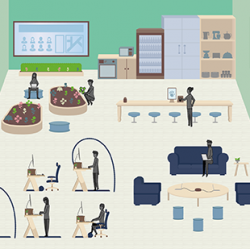January 26, 2017
Majority of employers predict more challenging economic conditions this year 0
Three quarters of UK employers (76 percent) expect economic conditions to be more challenging in 2017 compared to 2016 and there are signs that the jobs market is slowing, claims the Recruitment & Employment Confederation (REC) latest JobsOutlook survey. Employers intending to increase their permanent staff headcount within the next three months has reduced to one in five (21 percent), down from 24 percent reported last month. Similarly, demand for permanent staff has reduced in all sectors except health & social care and education. More positively, despite harsh economic conditions, businesses remain self-confident with three quarters of employers polled (74 percent) saying that their business will perform better this year compared to last year. Skills shortages remain a challenge for businesses however, as half of all employers (50 percent) anticipate a shortage of suitable candidates for some permanent roles this year. Employers anticipate that roles in engineering & technology, health & social care, and hospitality will be particularly affected by skills shortages.







































